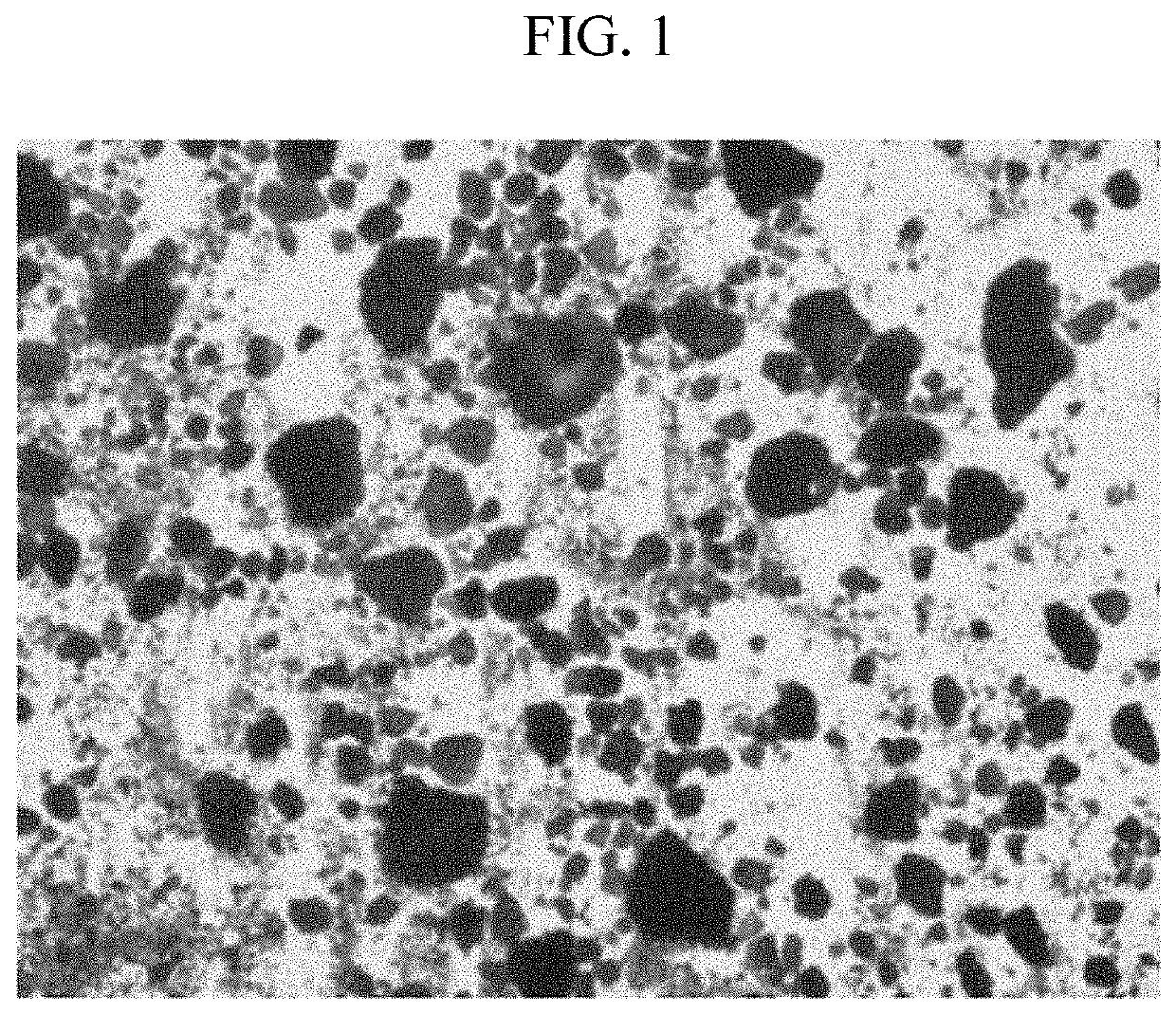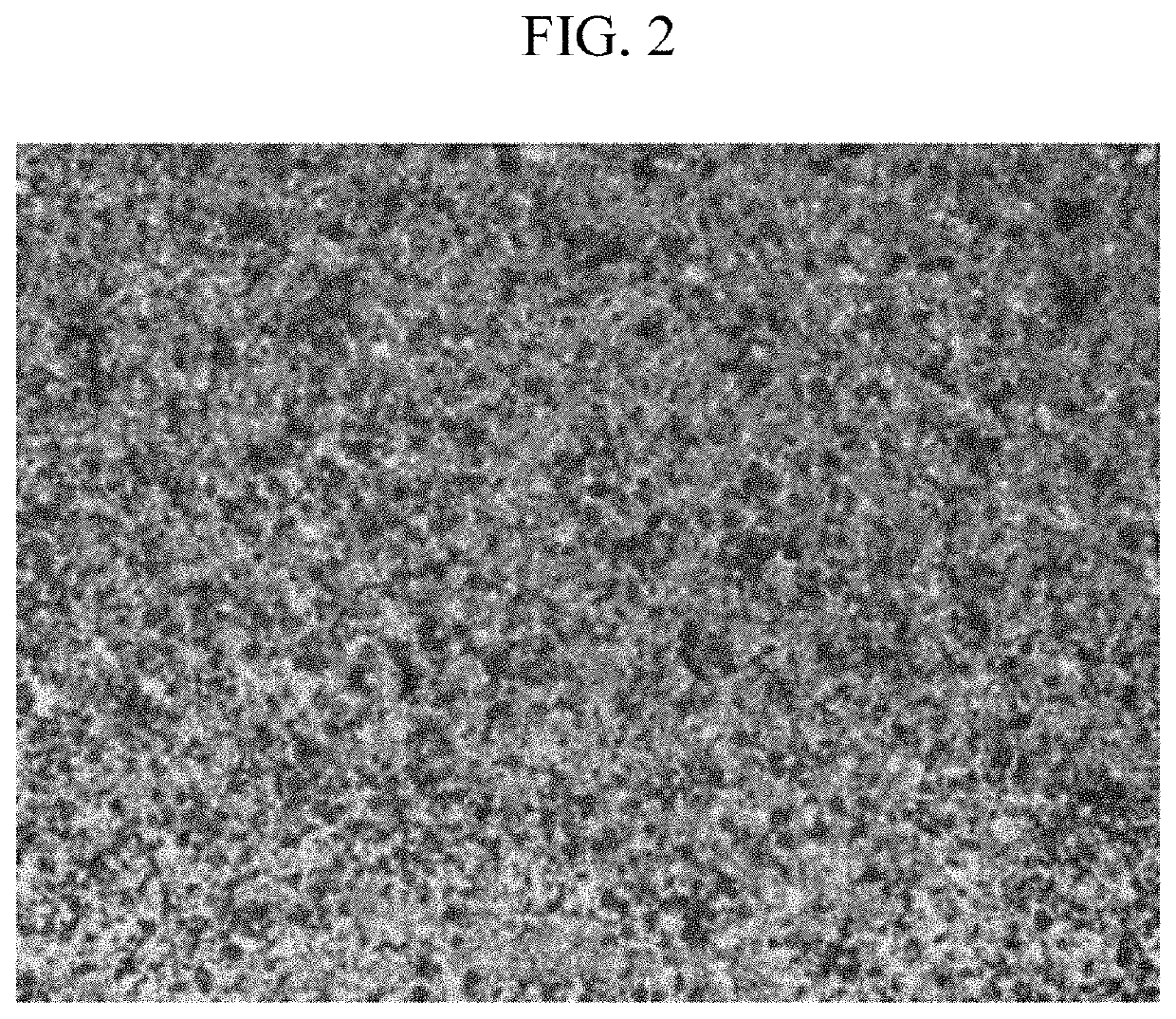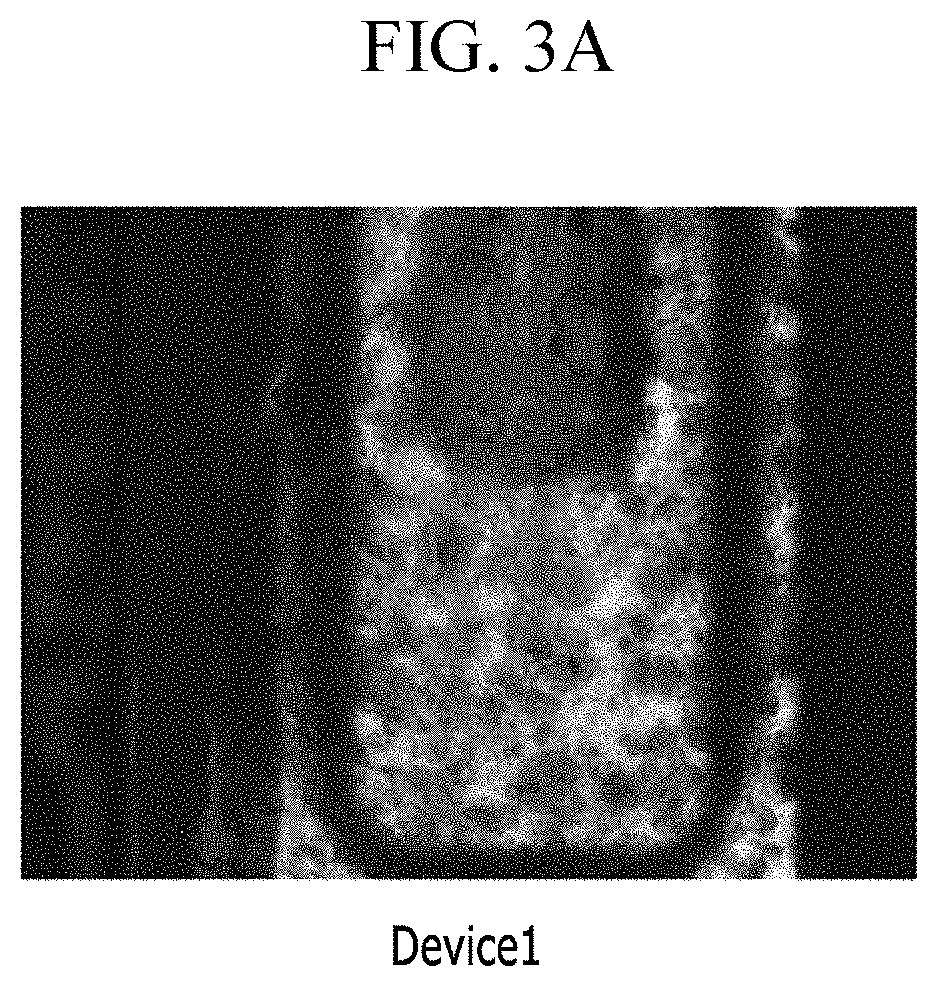Methods of grinding semiconductor nanocrystal polymer composite particles
a technology of composite particles and nanocrystals, which is applied in the direction of luminescent compositions, instruments, chemistry apparatuses and processes, etc., can solve the problems of reduced efficiency of display devices and poor compatibility of resin materials, and achieve the effect of improving the level of light emitting efficiency
- Summary
- Abstract
- Description
- Claims
- Application Information
AI Technical Summary
Benefits of technology
Problems solved by technology
Method used
Image
Examples
reference example 1
/ SnSeS Semiconductor Nanocrystal-Polymer Composite Particle (Prior to the Low Temperature Grinding)
[0184](1) 0.058 grams (g) of indium acetate, 0.0183 g of zinc acetate, 0.204 g of palmitic acid, and 10 milliliters (mL) of 1-octadecene are placed in a flask, subjected to a vacuum at 120° C. for one hour, and then heated to 280° C. after the atmosphere in the flask is exchanged with N2. After the temperature is stabilized at 280° C., a mixed solution of 0.43 μL of tris(trimethylsilyl)phosphine and 1 mL of trioctylphosphine (“TOP”) is quickly injected and the reaction proceeds for 10 minutes. Then, the mixture is rapidly cooled and acetone is added thereto to produce nanocrystals, which are then separated by centrifugation and dispersed in toluene. The first UV absorption maximum of the prepared InZnP core nanocrystals is 440˜460 nm. 0.056 g of zinc acetate, 0.189 g of oleic acid, and 10 mL of trioctylamine are placed in a flask, subjected to a vacuum at 120° C. for 10 minutes, and th...
example 1
ane as an Inert Organic Solvent
[0187]The semiconductor nanocrystal-polymer composite particle prepared in the Reference Example 1 is subjected to the low temperature grinding using a cryogenic ball milling device (manufactured by JAS (Japan Analytical Industry), JFC-2000). A mixture of 1 g of the InZnP / SnSeS semiconductor nanocrystal-polymer composite particles prepared in the Reference Example 1 and 1 g of hexane is placed in a container with balls for the cryogenic milling. The container is closed, and then a milling rod is connected. The container is immersed and maintained in liquid nitrogen for five minutes. Then, the cryogenic milling is conducted at a frequency of 50 Hertz (Hz) for four cycles. One cycle is five minute milling and a five minute break. After the cryogenic milling, the container is removed from liquid nitrogen and allowed to warm to room temperature. Then, the resulting slurry including hexane and the semiconductor nanocrystal-polymer composite fine particles a...
examples 2 to 5
[0188]The ground fine particles of the semiconductor nanocrystal-polymer composite are prepared as according to Example 1, except for changing the amount of hexane and the repetition number of cycles as shown in Table 1.
[0189]An optical microscope image (50×) of the ground find particles obtained in Example 2 is shown in FIG. 2.
PUM
| Property | Measurement | Unit |
|---|---|---|
| diameter | aaaaa | aaaaa |
| particle size | aaaaa | aaaaa |
| quantum efficiency | aaaaa | aaaaa |
Abstract
Description
Claims
Application Information
 Login to View More
Login to View More - R&D
- Intellectual Property
- Life Sciences
- Materials
- Tech Scout
- Unparalleled Data Quality
- Higher Quality Content
- 60% Fewer Hallucinations
Browse by: Latest US Patents, China's latest patents, Technical Efficacy Thesaurus, Application Domain, Technology Topic, Popular Technical Reports.
© 2025 PatSnap. All rights reserved.Legal|Privacy policy|Modern Slavery Act Transparency Statement|Sitemap|About US| Contact US: help@patsnap.com



